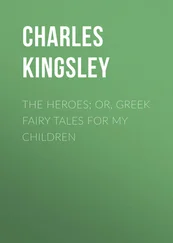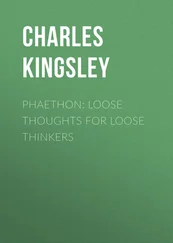Charles Kingsley - True Words for Brave Men - A Book for Soldiers' and Sailors' Libraries
Здесь есть возможность читать онлайн «Charles Kingsley - True Words for Brave Men - A Book for Soldiers' and Sailors' Libraries» — ознакомительный отрывок электронной книги совершенно бесплатно, а после прочтения отрывка купить полную версию. В некоторых случаях можно слушать аудио, скачать через торрент в формате fb2 и присутствует краткое содержание. Издательство: Иностранный паблик, Жанр: foreign_prose, foreign_religion, Философия, foreign_psychology, foreign_antique, на английском языке. Описание произведения, (предисловие) а так же отзывы посетителей доступны на портале библиотеки ЛибКат.
- Название:True Words for Brave Men: A Book for Soldiers' and Sailors' Libraries
- Автор:
- Издательство:Иностранный паблик
- Жанр:
- Год:неизвестен
- ISBN:нет данных
- Рейтинг книги:3 / 5. Голосов: 1
-
Избранное:Добавить в избранное
- Отзывы:
-
Ваша оценка:
- 60
- 1
- 2
- 3
- 4
- 5
True Words for Brave Men: A Book for Soldiers' and Sailors' Libraries: краткое содержание, описание и аннотация
Предлагаем к чтению аннотацию, описание, краткое содержание или предисловие (зависит от того, что написал сам автор книги «True Words for Brave Men: A Book for Soldiers' and Sailors' Libraries»). Если вы не нашли необходимую информацию о книге — напишите в комментариях, мы постараемся отыскать её.
True Words for Brave Men: A Book for Soldiers' and Sailors' Libraries — читать онлайн ознакомительный отрывок
Ниже представлен текст книги, разбитый по страницам. Система сохранения места последней прочитанной страницы, позволяет с удобством читать онлайн бесплатно книгу «True Words for Brave Men: A Book for Soldiers' and Sailors' Libraries», без необходимости каждый раз заново искать на чём Вы остановились. Поставьте закладку, и сможете в любой момент перейти на страницу, на которой закончили чтение.
Интервал:
Закладка:
Now let us think a while what that text means; for it has not to do with Moses only, but with all God’s prophets, evangelists, preachers. David might have said the same to the Jews in his time, “I AM hath sent me unto you.” Elijah, Isaiah, St. Matthew, St. John, St. Paul, might have said the same. And so may God’s ministers now. And I, however sinful, or ignorant, or unfaithful to my duty I may be, have still a right to say, as I do now say solemnly and earnestly to you, “I AM hath sent me unto you” this day.
But what do I mean by that? That ought to depend on what Moses meant by it. Moses meant what God meant, and unless I mean the same thing I must mean something wrong. And this is what I think it does mean:
First. I AM—the Lord Jesus Christ told Moses that his name was I AM. Now you perhaps think that this is but a very common place name, for every one can say of himself—I am—and it may seem strange that God should have chosen for His own especial name, words which you and I might have chosen for ourselves just as well. I daresay you think that you may fairly say “ you are ,” and that I can say fairly that “I am.”
And yet it is not so. If I say “I am,” I say what is not true of me. I must say “I am something—I am a man, I am bad, or I am good, or I am an Englishman, I am a soldier, I am a sailor, I am a clergyman”—and then I shall say what is true of me. But God alone can say “I AM” without saying anything more.
And why? Because God alone is . Everybody and everything else in the world becomes : but God is . We are all becoming something from our birth to our death—changing continually and becoming something different from what we were a minute before; first of all we were created and made, and so became men ; and since that we have been every moment changing, becoming older, becoming wiser, or alas! foolisher; becoming stronger or weaker; becoming better or worse. Even our bodies are changing and becoming different day by day.
But God never changes or becomes anything different from what He is now. What He is, that He was, and ever will be. God does not even become older. This may seem very strange, but it is true: for God made Time, God made the years; and once there were no years to count by, no years at all. Remember how long had God Himself been, before He made Time, when there was no Time to pass over? Remember always that God must have created Time. If God did not create Time, no one else did; for there is, as the Athanasian Creed says, “One uncreated and One eternal,” even God who made Time as well as all things else.
Am I puzzling you? What I want to do is to make you understand that God’s life is quite utterly different from our life, or any way of living and being which we can fancy or think of; lest you make to yourselves the likeness of anything in heaven above or of the earth beneath, and think that God is like that and so worship it, and have other gods beside the true God, and so break the first and second commandments, as thousands do who fancy themselves good Protestants, and hate Popery and idolatry, and yet worship a very different sort of god from the “I AM,” who sent Moses to the children of Israel. Remember then this at least, that God was before all things, and all worlds, and all Time; so that there was a time when there were no worlds, and a time when there was no Time—nothing but God alone, absolute, eternal, neither made nor created, the same that He is now and will be for ever.
When I say “God is,” that is a very different thing from God Himself saying, “I AM.” A different thing? Oh! my friends, here is the root of the whole Gospel, the root of all our hope for this world and for the world to come—for ourselves, for our own future, and the future of all the world. Do you not see how? Then I will try to explain.
Many heathen men have known that there was one eternal God, and that God is . But they did not know that God Himself had said so; and that made them anxious, puzzled, almost desperate, so that the wiser they were, the unhappier they were. For what use is it merely knowing that “ God is ”? The question for poor human creatures is, “But what sort of a being is God? Is He far off? Millions of miles from this earth? Does He care nothing about us? Does He let the world go its own way right or wrong? Is He proud and careless? A self-glorifying Deity whose mercy is not over all His works, or even over any of them? Or does He care for us? Does He see us? Will He speak to us? Has He ever spoken to any one? Has He ever told any one about Himself?” There is the question —the question of all questions. And if a man once begins thinking about his own soul, and this world, and God,—till he gets that question answered, he can have no comfort about himself or the world, or anything—till in fact he knows whether God has ever spoken to men or not.
And the glory of the Bible, the power of God revealed in the Bible, is, that it answers the question, and says, “God does care for men, God does see men, God is not far off from any one of us.” Ay, God speaks to men—God spoke to Moses and said, not “God is” but “I AM.” God in sundry times and in divers manners spoke to our fathers by the Prophets and said “I AM.”
But more—Moses said, “I AM hath sent me.” God does not merely love us, and yet leave us to ourselves. He sends after us. He sends to us. In old times He sent prophets and wise men one after the other to preach repentance and righteousness, and to teach men all that was good for them; and when men would not listen to them, but shut their ears to them and drove them out, killing some and beating some, God was so determined to send to men, so unwearied, so patient, so earnest, so loving still, that He said, “I will send now my own Son, surely they will hear Him.”
Yes, my friends, this is the I AM. This is God—this is our God—this is our Heavenly Father; not a proud and selfish Being, who looks down haughtily from afar off on all the misery and ignorance of the world, but as a wise man of old said, “A most merciful God, a revealer of secrets, who showeth to man the things which he knew not.” This is our God—not a tyrant, but a Deliverer—not a condemning God, but a saving God, who wills that none should perish, who sends to seek and to save those who are lost, who sends His sun to shine on the just and the unjust, and is good to the unthankful and the evil. A God who so loved the world which He had made, in spite of all its sin and follies, that He spared not His only begotten Son, but freely gave Him for it. A God who sits on His throne for ever judging right, and ministering true judgment among the people, who from His throne beholds all those who dwell upon the earth, and fashions the hearts of them, and understandeth all their works. A God who comes out of His place to visit the wrong done on the earth, and be a refuge for the oppressed, and a help in time of trouble, to help the fatherless and poor unto their right, that the men of this world be no more exalted against them.
This is our God . This is our Father—always condescending, always patient, always loving, always just. And always active, always working to do good to all his creatures, like that exact pattern and copy of Himself, the Lord Jesus Christ, who said, “My Father worketh hitherto, and I work.” (John v. 17).
But again: “I AM hath sent me unto you .”
Unto whom? Who was Moses sent to? To the Children of Israel in Egypt. And what sort of people were they? Were they wise and learned? On the contrary they were stupid, ignorant, and brutish. Were they pious and godly? On the contrary they were worshipping the foolish idols of the Egyptians—so fond of idolatry that they must needs make a golden calf and worship it. Were they respectable and cleanly livers? Were they teachable and obedient? On the contrary, they were profligate, stiff-necked, murmurers, disobedient, unwilling to trust God’s goodness, though He had shown them all those glorious signs and wonders for their sakes, and brought them out of Egypt with a mighty hand and a stretched-out arm. Were they high-spirited and brave? On the contrary, they were mean-spirited and cowards, murmuring against Moses and against God, if anything went wrong, for setting them free; ready to go back and be slaves to the Egyptians rather than face danger and fight; looking back and longing after the flesh-pots of Egypt, where they eat bread to the full, and willing to be slaves again and have all their men children drowned in the river, and themselves put to hard labour in the brick kilns, if they could only fill their stomachs. And even at best when Moses had brought them to the very edge of that rich land of Canaan, which God had promised them, they were afraid to go into it, and win it for themselves; and God had to send them back again, to wander forty years in the wilderness, till all that cowardly, base, first generation, who came up out of Egypt was dead, and a new generation had grown up, made brave and hardy by their long training in the deserts, and taught to trust and obey God from their youth; and so able and willing to conquer the good land which God had promised them.
Читать дальшеИнтервал:
Закладка:
Похожие книги на «True Words for Brave Men: A Book for Soldiers' and Sailors' Libraries»
Представляем Вашему вниманию похожие книги на «True Words for Brave Men: A Book for Soldiers' and Sailors' Libraries» списком для выбора. Мы отобрали схожую по названию и смыслу литературу в надежде предоставить читателям больше вариантов отыскать новые, интересные, ещё непрочитанные произведения.
Обсуждение, отзывы о книге «True Words for Brave Men: A Book for Soldiers' and Sailors' Libraries» и просто собственные мнения читателей. Оставьте ваши комментарии, напишите, что Вы думаете о произведении, его смысле или главных героях. Укажите что конкретно понравилось, а что нет, и почему Вы так считаете.












